The most trusted institutions in the U.S. are small business and the military, the only two sectors in which a majority of Americans have confidence.
Americans’ trust in institutions hit new historic lows in 2022, Gallup found in its latest poll of U.S. sentiment across all major sectors.
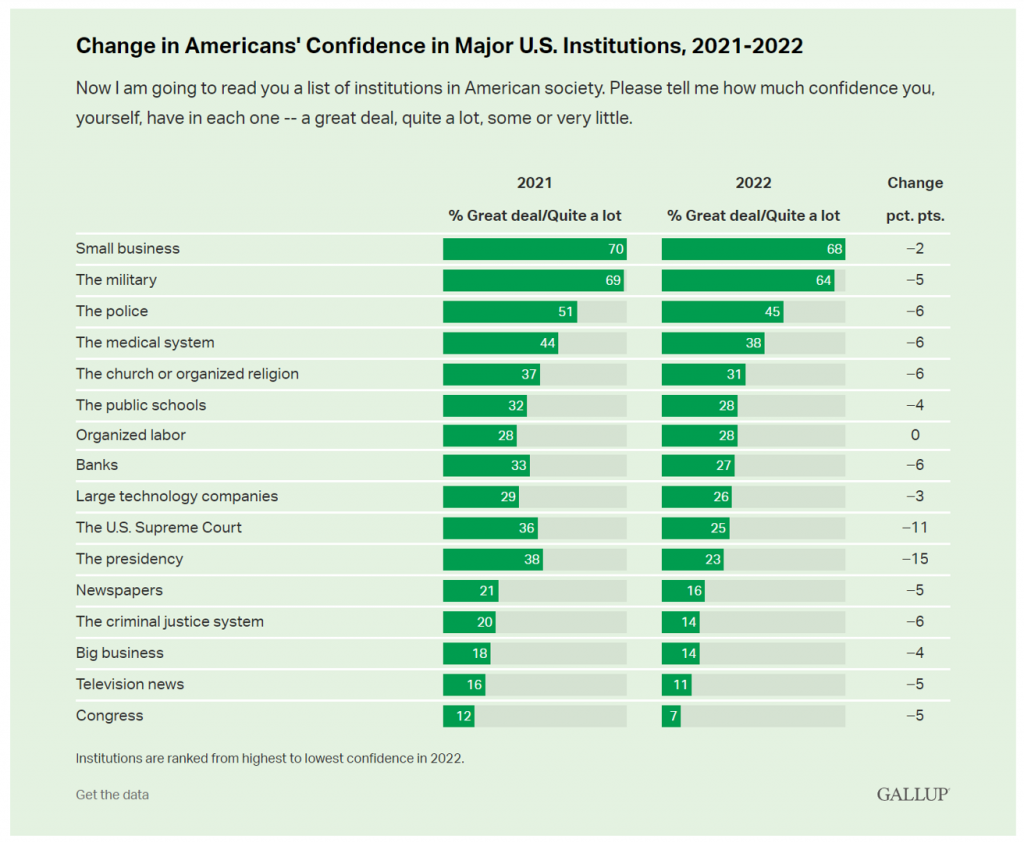
Today, more Americans have faith in the police than in the medical system, according to a Gallup poll finding that Confidence in U.S. Institutions Down; Average at New Low. published this week of Independence Day 2022.
Confidence runs from a higher of 68% for small business to the low of 7% for the U.S. Congress. The military is the only institution besides small business for which a majority of Americans express confidence (64%).
Confidence in large technology companies hit a low point this year falling to 26%.
The chart illustrates trends in peoples’ faith in institutions from 2021 to 2022, seeing the largest declines in trust for the U.S. Supreme Court and the Presidency, by 11 and 15 percentage points, respectively.
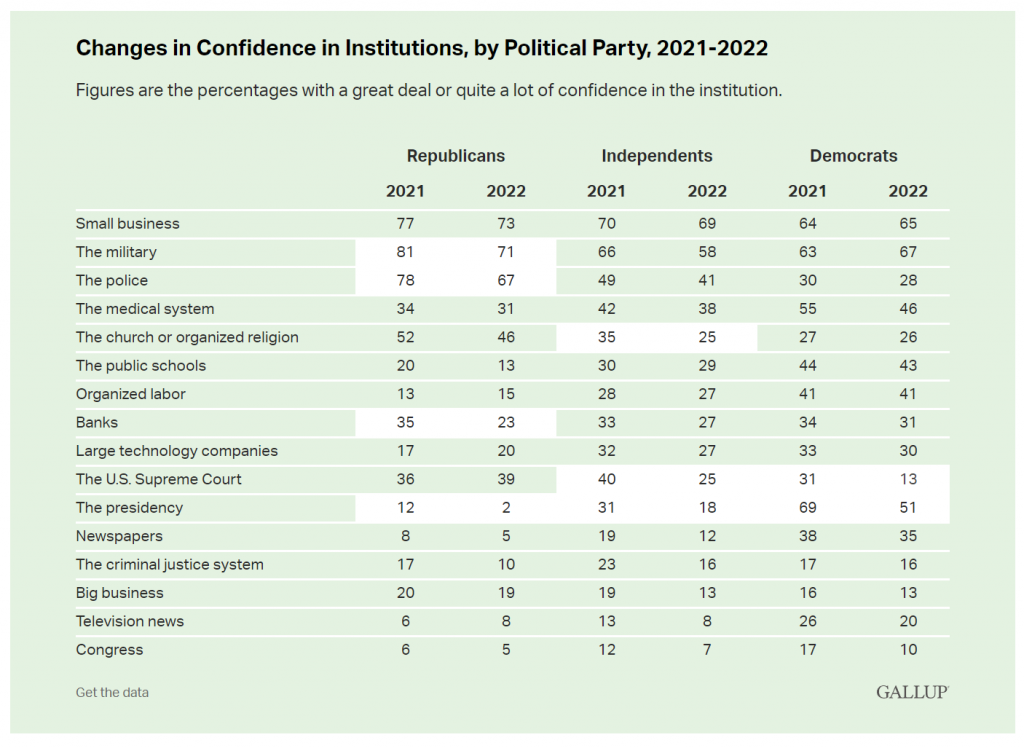
The second graph breaks out the polling data by the respondent’s political party, which illustrates substantial differences across different institutions.
More Republicans have confidence in the small business, the military, and the medical system — but faith in each of those three sectors fell between 2021 and 2022. Republicans also index higher in confidence in the church or organized religions compared with Independents or Democrats.
Democrats tend to have confidence in the military, small business, and the Presidency — but faith in the Presidency eroded from 69% in 2021 down to 51% in 2022.
Democrats’ confidence in SCOTUS fell to a nadir of 13% (18 points down from 2021) compared with 39% among Republicans (up 3 points) and 25% for Independents (down 15 points).
For Independents, their greatest confidence goes to small business, the military and the police, each earning less trust in 2022.
Confidence in the Congress hit bottom in this survey, tending toward “zero,” relatively speaking: 5% of Republicans had confidence in Congress this year versus 7% of Independence and 10% of Democrats.
Gallup has conducted its confidence-in-institutions survey annually since 1973. This year’s poll was fielded between June 1 and 20, 2022.
Health Populi’s Hot Points: Confidence in the medical system dropped from 46% of Americans to 38% saying they felt confidence about health care the U.S.
If you are a health care provider having served on the front lines of the COVID-19 pandemic, in emergency departments and trauma centers treating drug-dependent patients on the throes of a Death of Despair, this datapoint acutely hurts.
There is a direct connection between people lacking faith in the U.S. medical system and the rate of resignations and level of burnout clinicians in the U.S. have felt and dealt with since long before the public health crisis emerged in early 2020.
The coronavirus served to turbocharge that burnout and stress, which we detailed in this post on Medscape’s 2022 study on Physician Burnout & Depression..

Ironic, then, that most people in the U.S. rank front-line health care professionals as the most honest and ethical professions in America, year after year, in Gallup’s annual poll on the topic.
This graphic captures the Gallup data in a new report from CVS Health, the Health Trends: Trust in Health Care, Summer 2022. The report curates data on trust and health from Edelman’s Trust Barometer, the Harris Poll, NORC, the Pew Research Center, and ABIM Foundation, along with Gallup’s research.
“If you could put trust in a bottle, prescribing it would save millions of lives. Trusted providers can help people get more screenings, accept routine vaccines and take other measures that keep them healthy,” the report calls out.
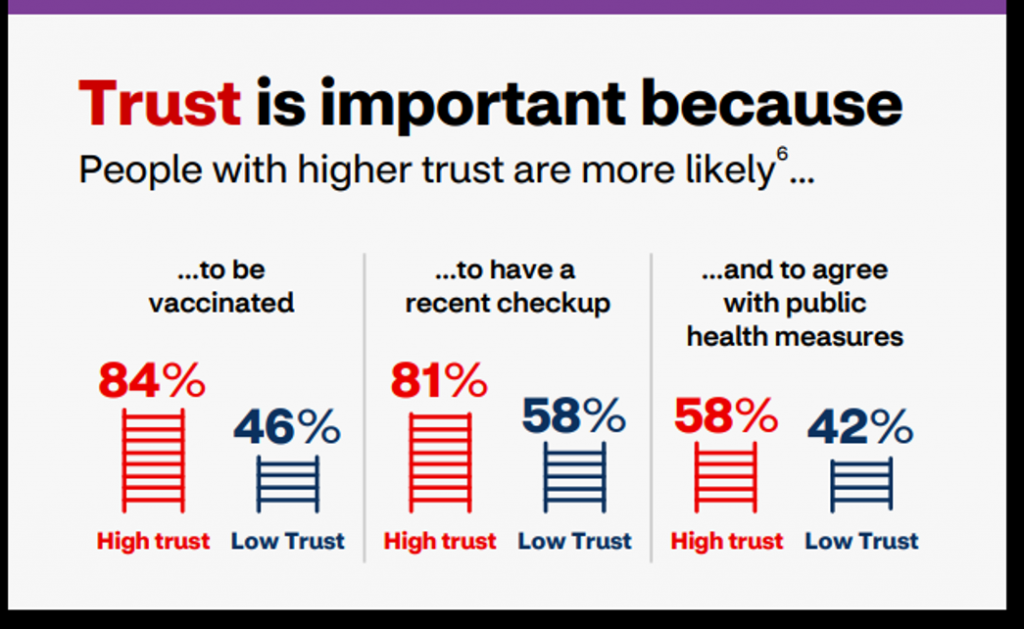
This chart is based on findings gleaned in the 2022 Edelman Trust Barometer Special Report on Trust and Health. People with lower trust in the health ecosystem were found far less likely to be vaccinated versus those with higher trust in the health system. In addition, those with lower trust in the health ecosystem were less likely to engage in preventive care such as having had a routine check-up in the last year, Edelman discovered.
The U.S. had the largest gap in the world (based on the nations polled) when it came to vaccination between the trusting vs. un-trusting, and among the highest gaps for engaging in preventive care.
Trust in health care can also tie with socioeconomic status and income, race and ethnicity, as CVS called out the health care trust gaps which are greater for Black and Hispanic people in the U.S. versus Whites, and for people earning lower incomes.
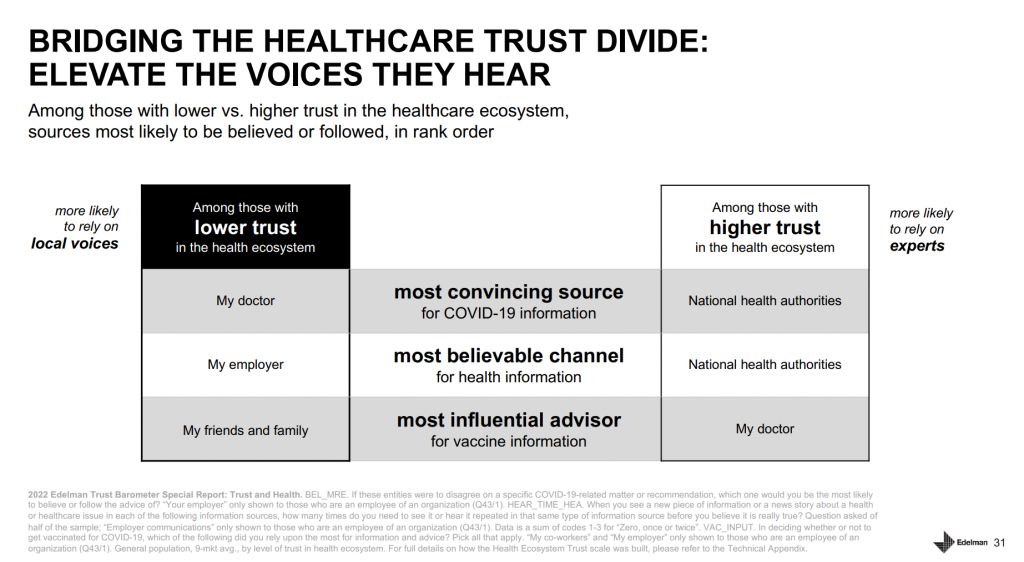
One prescription for bolstering trust in health care among those lacking it is to support “local voices” in bridging the trust divide, Edelman suggests based on the 2022 findings. People with lower trust in the health ecosystem would more likely rely on local voices.
Who are those local voices? My doctor, My employer, and My friends and family, Edelman recommends.
We can add other local trusted touchpoints for health and wellbeing, such as the grocery store, the faith institution, the barbershop, the community college, the YMCA, the social clubs where folks gather.
We now know that Trust is a Determinant of Health.


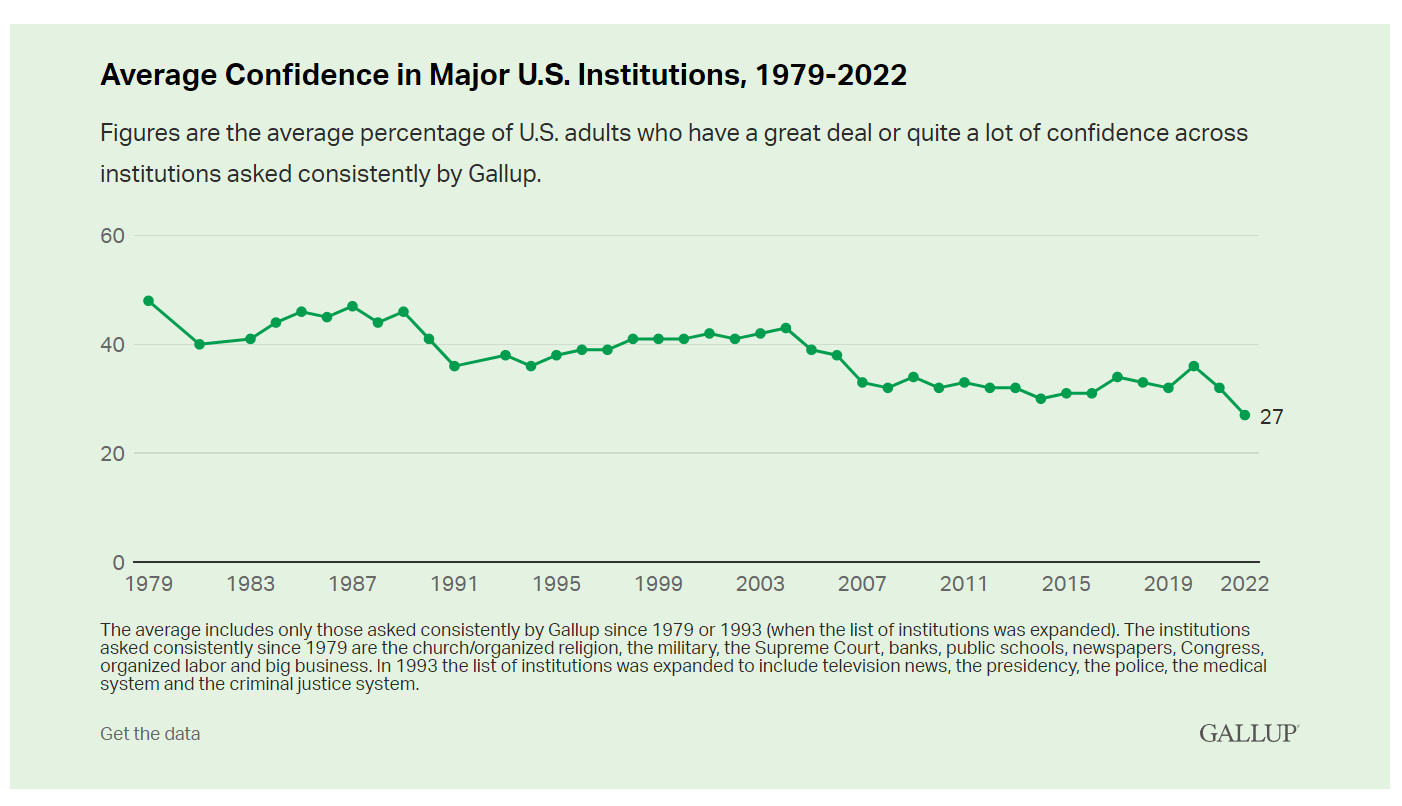


 Thanks to Feedspot for naming this blog, Health Populi, as a
Thanks to Feedspot for naming this blog, Health Populi, as a